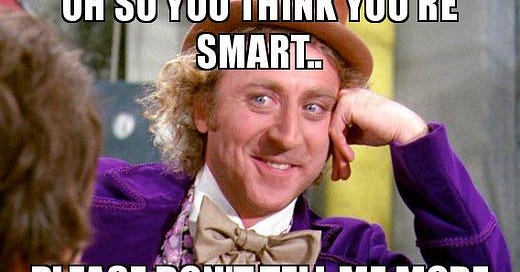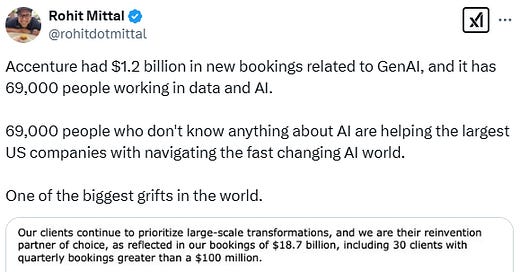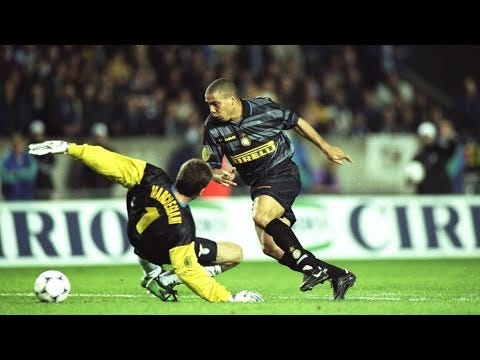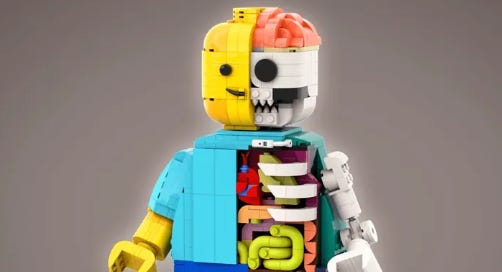
I’ve been around the consulting business for quite a while - long enough to be absolutely sure that nobody can work long hours no stop for a really long time.
Nowadays, people are praised for enduring lots of “hard” work, like having meetings back-to-back. People might say: “Wow, you’re so clever for working 18 hours a day!”
No, you’re not.
What is often not understood is that working too hard without breaks can actually make things worse, leading to burnout.
Now, to start with, let me clear something up: working hard is important if you want to achieve big goals.
I’m not saying hard work is bad.
Hello 👋 one quick ask before you keep reading.
If you are new to this newsletter, please subscribe: it’s free… and interesting ✔
If you are already subscribed, please share it: don’t be selfish! 🤗
Many (all?) successful people have pushed themselves to their limits to achieve what many might have thought was impossible. If you are ambitious, you have probably experienced moments like this already in your life.
However, while hard work is talked about a lot, people don’t talk as much about how to recover from it or how to structure it for the best results.
No matter who you are, knowing when to take breaks (finding your rhythm) and how long they should be (tweaking the frequency of breaks) can help you get more done.
Figuring out the right balance between working hard and taking breaks is more an art than a science, and one that is very personal.
To start finding this balance, and to get better at it over time, there are two important things you will need:
Knowing yourself well, including when you work best and when you need breaks;
Being able to set your own pace, even when there are deadlines and pressure from others.
Let me start by addressing the first point with a personal example.
I work best in the morning. I don’t need much time after waking up to be at my mental peak: it takes me just a few minutes. I use mornings to attack the most complex problems I have in front of me that day, or the tasks that require the highest levels of creativity.
Usually, I dedicate a couple of hours after dawn to work on those tough things, and I don’t take a break until I' have made significant progress. Most of the time, I try to finish them in one go, but if I’m dealing with a complex challenge, I know that it might take longer.
After I have used up my mental energy, I take a break. It wouldn’t make sense for me to keep working and pushing through, because I wouldn’t be nearly as productive. I know now that when I hit that moment, that is the right time for me to just do jacksh*t. But I didn’t always work this way. There was a time when I had to experiment and figure out what works best for me.
Now, to the second point.
In jobs like consulting, deadlines are common. Very common.
While a deadline is a deadline - to paraphrase George Orwell - some deadlines are less equal than others.
Some deadlines can indeed be adjusted and, with experience, we learn that the world keeps spinning even when we miss them. Obviously, I’m not saying we should actively try to miss deadlines, but sometimes it’s better to adjust them rather than to burn out trying to achieve the impossible.
Other times, we’ll need to put in extra effort to meet a really crucial deadline, knowing that we will have time to do jacksh*t after getting it done. We will be able to recover.
On other occasions, it’s our own thoughts that tell us that taking a break is a waste of time. I have fallen into this trap myself at times: I’ve improved at this but I’m far from perfect.
Realizing how valuable breaks are can make us understand the significance of resting during our periods of high productivity. It can also show us the importance of taking full days off when we are not in the mood for serious work.
Our minds often try to convince us that doing jacksh*t is counterproductive, but this perspective can hinder our overall effectiveness.
Understanding the importance of intervals during productive phases and allowing ourselves complete downtime when needed will lead to better outcomes and long-term success. But you’ll need to work hard at finding the right balance between exertion and recovery.
The key of all we have just discussed is timing: knowing when to take a break (and when to get back to work) comes from understanding our body and our mind. This takes practice, experience and quite a bit of sensitivity.
Purposeful distractions can actually make us smarter. Mastering the art of doing jacksh*t is an incredibly useful soft skill: those who know how to manage it best, tend to manage other things in their lives more effectively and efficiently too.













Enjoyed reading this one 🙂